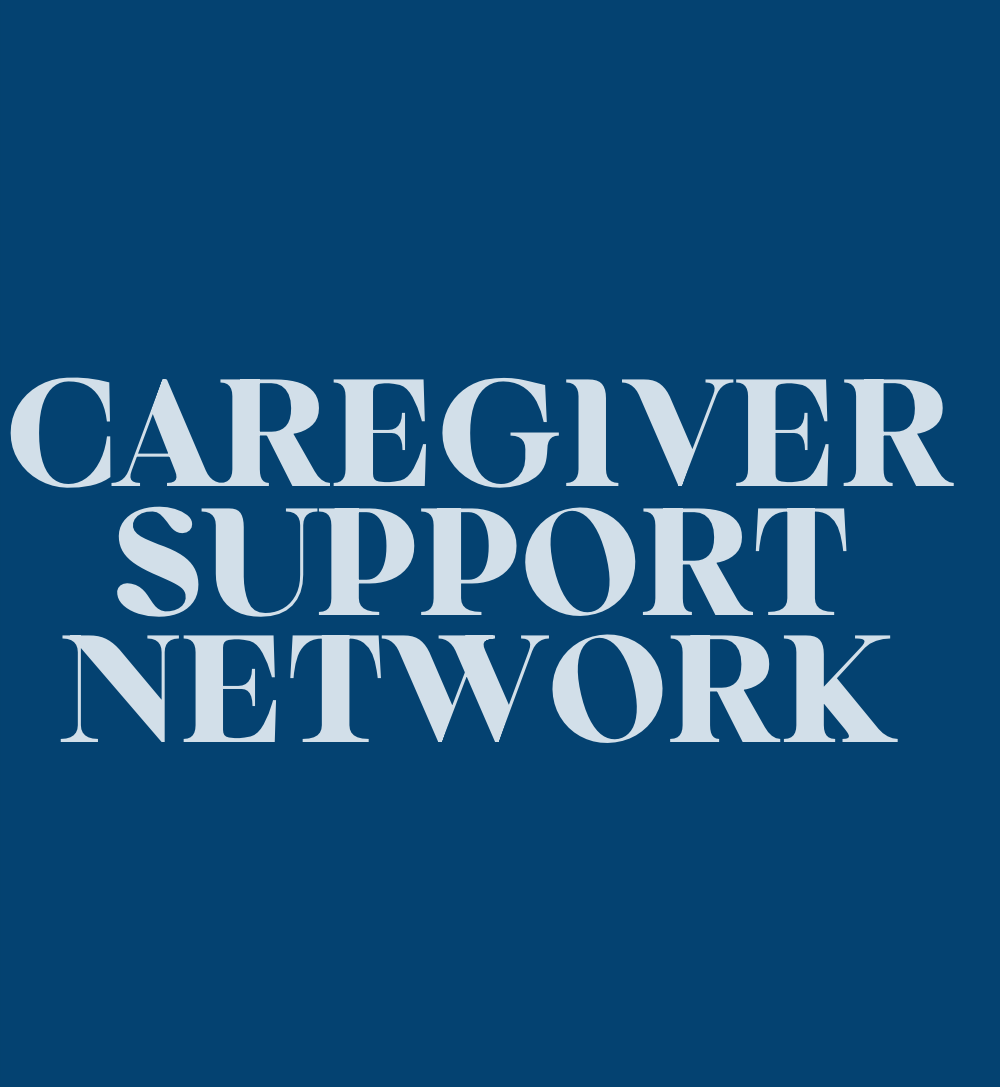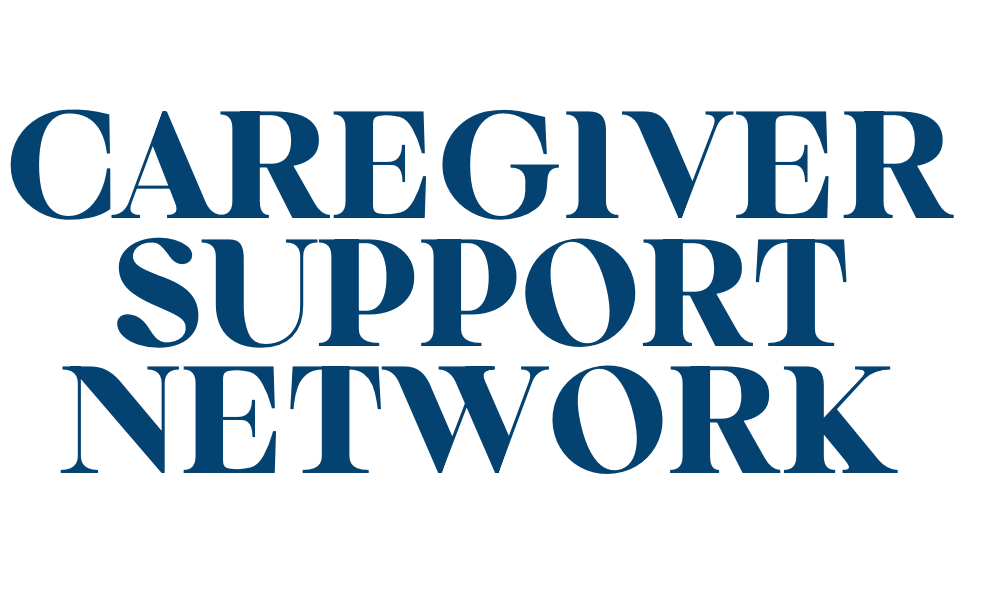Caregiver Support
Empowering Caregivers: Harnessing the Power of Mindfulness in Dementia Care
Get ready to discover how mindfulness transforms caregiving for individuals with dementia, opening doors to profound connections and enhanced well-being.

Exploring the realm of caring for those with dementia, we uncover the profound impact of mindfulness on those providing care. By learning to remain in the moment, cultivating consciousness, and fostering an attitude free from judgment, caregivers acquire essential abilities.
These tools not only aid in navigating challenges with clarity and compassion but also pave the way for a deeper connection with those under their care. The potential for transformative change lies within these mindfulness practices, offering a path towards enhanced well-being and support.
Key Takeaways
- Mindfulness reduces caregiver stress and enhances well-being.
- Improved quality of life for caregivers and care recipients.
- Mindfulness tools aid in managing dementia care complexities.
- Mindfulness fosters resilience, compassion, and improved care quality.
The Science Behind Mindfulness in Caregiving
Understanding the profound impact of mindfulness in caregiving requires a compassionate exploration of its scientific foundations and practical applications. Mindfulness plays a pivotal role in dementia care, offering caregivers a powerful tool to navigate the challenges of providing support to individuals with dementia.
Research indicates that mindfulness-based dementia care can significantly improve the quality of life for both caregivers and care recipients. By engaging in a mindfulness training program, caregivers can learn how to effectively manage their stress levels, reduce burnout, and enhance their overall well-being. This mindfulness practice fosters a non-reactive and non-judgmental approach, allowing caregivers to be fully present and compassionate in their interactions with individuals with dementia.
Through mindfulness, caregivers can cultivate a deeper understanding of their own emotions and reactions, leading to improved care outcomes and a more fulfilling caregiving experience for all involved.
Practical Mindfulness Techniques for Caregivers

To support caregivers in their journey of providing dementia care, incorporating practical mindfulness techniques can be immensely beneficial for enhancing well-being and managing stress effectively. Here are three essential mindfulness practices for dementia caregivers:
- Deep Breathing Exercises: Engaging in deep breathing exercises can help caregivers reduce stress levels and cultivate a sense of calmness amidst challenging situations. By focusing on their breath, caregivers can center themselves and approach caregiving responsibilities with a clearer mind.
- Body Scans: Body scans involve paying attention to different parts of the body, noticing any tension or discomfort, and consciously releasing it. This practice not only promotes relaxation but also enhances self-awareness, allowing caregivers to address their own physical and emotional needs while providing care to others.
- Mindful Walking: Taking mindful walks can be a rejuvenating practice for caregivers, enabling them to connect with nature, clear their minds, and find moments of peace. Walking mindfully fosters a sense of presence and can serve as a form of moving meditation, promoting overall well-being and resilience in the face of caregiving challenges.
Benefits of Mindfulness for Dementia Patients
Mindfulness practices offer dementia patients a range of benefits, from reducing agitation and challenging behaviors to enhancing cognitive functions and emotional well-being. Research indicates that mindfulness interventions, such as mindfulness-based cognitive therapy, can significantly improve the quality of life for individuals with dementia.
By incorporating mindfulness into dementia care, patients may experience better emotional regulation, leading to a more stable and positive well-being. These practices not only benefit the patients but also have a positive impact on caregiver distress, ultimately improving the overall care provided.
Mindfulness approaches create a sense of calm, connection, and presence for both caregivers and patients, fostering a more compassionate and supportive environment in dementia care. By focusing on the present moment and promoting awareness, mindfulness techniques have the potential to transform the experience of dementia for patients and caregivers alike.
Overcoming Challenges Through Mindfulness Practices

Navigating the complexities of dementia care can be eased through the application of mindfulness practices, offering caregivers valuable tools to overcome challenges with clarity and compassion. Engaging in mindfulness techniques allows us to reduce stress levels and approach caregiving with a renewed sense of purpose and well-being. By incorporating mindfulness practices into our daily routine, we can enhance the quality of care provided to individuals with dementia, fostering a more compassionate and understanding environment for both the caregiver and the person receiving care.
Key Points:
- Enhanced Clarity: Mindfulness practices help caregivers approach challenging situations with a clear and focused mind, allowing for better decision-making and problem-solving.
- Increased Compassion: By practicing mindfulness, caregivers can cultivate a sense of empathy and compassion towards individuals with dementia, leading to more meaningful interactions and relationships.
- Improved Well-being: Regular mindfulness training can significantly impact the overall well-being of caregivers, reducing burnout and increasing resilience in the face of difficulties in dementia care.
Building Resilience and Compassion With Mindfulness
Developing resilience and compassion through mindfulness practices is essential for caregivers in effectively managing the challenges of dementia care. Mindfulness practice plays a crucial role in helping caregivers reduce stress, anxiety, and burnout commonly experienced in dementia care settings.
By incorporating mindfulness techniques, caregivers can enhance their compassion, emotional regulation, and overall well-being when caring for individuals with dementia. Studies have shown that mindfulness-based interventions improve caregivers' ability to navigate difficulties with clarity, patience, and non-reactivity, ultimately leading to better quality care for individuals with dementia.
Furthermore, integrating mindfulness into caregiver training programs can result in increased self-care, decreased emotional exhaustion, and an overall improvement in the care provided. By fostering a non-judgmental attitude and promoting acceptance and understanding, mindfulness empowers caregivers to build stronger relationships with those in their care, enhancing the quality of life for both caregivers and individuals with dementia.
Frequently Asked Questions
Does Mindfulness Help With Dementia?
Mindfulness indeed helps with dementia by aiding caregivers in managing stress, enhancing well-being, and improving their caregiving approach. It fosters awareness, clarity, and compassion in navigating challenges.
Research supports its positive impact on dementia progression and care quality. Integrating mindfulness empowers caregivers to offer holistic, person-centered care.
Its benefits extend to both caregivers and individuals with dementia, enhancing the overall caregiving experience.
What Is the Most Important Thing in Caring for Dementia Patients?
Understanding and meeting the five universal needs of dementia patients is paramount in caregiving. By recognizing and addressing the root causes of challenging behaviors, we can provide more effective care.
Developing strategies to fulfill unmet needs and enhancing our understanding of individuals with dementia are crucial steps. Prioritizing their needs and improving our understanding can greatly enhance the overall caregiving experience for those with dementia.
How Should Caregivers Who Have Clients With Dementia Protect Themselves From Stress?
We protect ourselves from stress by practicing mindfulness techniques like deep breathing, meditation, and setting realistic boundaries.
Engaging in self-care routines such as exercise, a healthy diet, and seeking social support are crucial.
Don't forget to utilize respite care services, delegate tasks, and take breaks when needed.
What Is the MBSR for Dementia Caregivers?
MBSR for dementia caregivers is a mindfulness-based program designed to reduce stress and boost well-being. It offers structured mindfulness training to help caregivers navigate the challenges of dementia care.
This program has been effective in enhancing psychological symptoms and coping strategies for caregivers. By focusing on presence, compassion, and emotional regulation, MBSR equips caregivers with tools to provide better care while managing their stress levels.
Conclusion
In conclusion, embracing mindfulness in dementia care empowers us to navigate challenges with clarity and compassion.
By being fully present and fostering awareness, we can truly enhance the well-being of those we care for.
Let's continue to harness the power of mindfulness like a beacon of light guiding us through the stormy seas of caregiving, transforming our journey with love and resilience.
Caregiver Support
Navigating Grief and Understanding Love and Friendship
Cultivating love and friendship amidst grief requires delicate balance and profound insights—discover transformative wisdom within.

When facing grief, understanding love and friendship is vital. Grasping the intricate dance between loss, affection, and supportive relationships is key to traversing the path toward healing. Memories and longing underscore the depth of connection, serving as pillars to lean on during tough times. Seek solace in community support, as shared experiences can provide comfort and validation. Professional guidance aids in processing complex emotions and developing resilience. Remember, strains on relationships may occur, but practicing empathy and patience is essential. As we delve deeper, you'll discover valuable insights for coping and fostering enduring bonds.
Key Takeaways
- Embracing memories honors love and deepens emotional connection.
- Building strong friendships aids in navigating grief complexities.
- Expressing emotions openly strengthens bonds and fosters healing.
- Friends provide essential emotional support and companionship in times of grief.
- Shared experiences with friends keep the spirit of loved ones alive.
The Interplay of Grief and Love
In our journey through grief and love, we uncover the intricate dance between sorrow and affection. The grieving process often reveals the profound connection between these seemingly contrasting emotions. As we navigate the complexities of loss, our relationships with other people can play a vital role in shaping our experiences of grief and love. Interacting with friends, family, or support groups can provide solace and comfort during challenging times. Sharing our feelings and memories with others can help us process our emotions and find healing in the midst of sorrow.
Moreover, relationships with other people can offer valuable insights and perspectives that aid in understanding the depth of our emotions. By engaging with others who've also experienced loss, we may gain a sense of solidarity and shared understanding that eases the burden of grief. These interactions can foster empathy, compassion, and mutual support, creating a sense of community that sustains us through the grieving process. Embracing the connections we've with others can bring light into the darkness of grief and illuminate the path towards healing and acceptance.
Embracing Memories and Longing

Embracing memories and longing for the presence of a lost loved one can evoke a bittersweet mix of emotions that illuminate the depth of our connection. While the ache of loss is undeniable, the love we carry for those who've passed on can provide solace in the darkest of times. Here are some insights to ponder:
- Memories serve as a confirmation to the love shared and the impact the individual had on our lives.
- Longing reflects the deep bond we forged and the void left by their absence.
- The intensity of longing can vary, but it's a natural part of the grieving process.
- Love transcends physical presence, allowing us to cherish the moments shared even in their absence.
- Acknowledging our longing can help us honor the love we still hold for the departed.
In traversing the complexities of love and loss, embracing memories and acknowledging our longing can be essential steps towards healing and finding peace amidst grief.
Coping Through Community Support
Community support is crucial in dealing with grief. Sharing experiences with others who empathize with our pain can create strong bonds, aiding in the healing journey. These connections offer comfort and validation, alleviating feelings of grief and isolation.
Having a support system to lean on can make a world of difference during difficult times. It allows individuals to feel understood and not alone in their struggles. This shared understanding can provide a sense of belonging and help in processing emotions.
Shared Experiences for Healing
Coping with grief becomes more manageable when we engage with shared experiences for healing through community support.
- Seeking Solace: Find comfort in shared stories and empathy.
- Reducing Isolation: Connect with others to diminish feelings of loneliness.
- Validation Through Empathy: Receive validation and understanding in grief.
- Healing Through Compassion: Aid in healing and acceptance by sharing journeys.
- Building Connection: Create a sense of belonging and connection through non-judgmental support.
Bonds Through Shared Sorrow
Shared sorrow within supportive communities cultivates deep connections and compassion among individuals traversing grief. In times of loss, relationships formed through community support play a significant role in helping individuals cope with their emotions.
Trust is fostered as shared grief experiences create a safe space for honest and empathetic interactions. Through these bonds, individuals find solace in knowing they aren't alone in their journey. Community support allows for vulnerability to be embraced, enabling individuals to express their true feelings without fear of judgment.
Validation and understanding from others in similar situations lessen feelings of isolation, providing a sense of belonging and comfort. Embracing relationships within supportive communities can help navigate the complexities of grief with compassion and companionship.
Professional Guidance in Grief

Seeking professional guidance in grief can provide individuals with expert support and tailored coping strategies to navigate their unique emotional journey. Grief counselors and therapists offer a safe space to express emotions, process loss, and navigate the grieving process. Here are five key benefits of seeking professional guidance in grief:
- Understanding Grief Reactions: Professionals can help individuals comprehend their emotions and reactions to grief, fostering self-awareness and emotional intelligence.
- Developing Healthy Coping Mechanisms: Guidance from experts can assist in establishing healthy coping strategies to manage grief in a constructive manner.
- Working Through Complex Emotions: Therapists provide tools and techniques to navigate through the intricate web of emotions that accompany grief, aiding in emotional processing and healing.
- Exploring Unresolved Issues: Professional guidance can help unearth unresolved issues related to loss, facilitating closure and emotional resolution.
- Self-Care and Resilience Building: Grief professionals offer practical advice on self-care practices and resilience-building techniques to support individuals in their journey towards healing and growth.
Strains on Relationships in Grief

Exploring the complexities of grief can often strain relationships with family and friends due to the varied coping mechanisms and emotional responses involved. Individuals experiencing grief may find it challenging to relate to those who haven't gone through similar losses, impacting the depth of understanding and support within their relationships.
Feelings of loneliness and isolation can emerge, leading to detachment from loved ones and creating obstacles in maintaining strong connections during times of grief. The intensity of grief can hinder effective communication of emotions, causing strain in relationships and potential misunderstandings between friends and family.
As individuals navigate the complex emotions associated with grief, expressing needs and seeking support from others may become more difficult, which can further strain relationships. It's important for both parties to approach these strained relationships with empathy, patience, and open communication to navigate through this challenging period together.
Healing Through Friendship Bonds

Friendship bonds hold immense power in aiding our healing journey through grief.
Shared memories with friends can provide a sturdy foundation of support during challenging times.
Engaging in open communication with friends offers a safe space for processing emotions and finding solace.
Shared Memories Strengthen
In times of grief, our shared memories with friends serve as a comforting balm, weaving a tapestry of solace and connection that strengthens our bonds and brings healing.
Reflecting on our past experiences together can deepen our friendships and offer a sense of comfort during difficult times. Recalling shared memories evokes positive emotions, fostering a feeling of togetherness and support.
Sharing stories and reminiscing about moments spent together not only brings joy but also aids in the healing process. Friendship bonds grow stronger through the shared memories we create, forming a lasting support system that sustains us through life's challenges.
Support in Tough Times
During challenging times of grief and loss, the indispensable support of our friends acts as a guiding light, aiding us in traversing the difficult path towards healing and emotional restoration.
Friends who offer empathy and understanding play a vital role in our journey towards healing. Sharing our experiences and emotions with friends can help us navigate the complexities of grief, providing comfort and solace in times of need.
Building strong friendships based on trust and vulnerability enhances our support network during tough times, allowing us to lean on those we trust.
Mutual respect, compassion, and active listening within friendships contribute to our emotional healing and growth, fostering a sense of connection and understanding that's essential for overcoming grief and finding solace in the midst of pain.
Growth Amidst Loss and Love

Reflecting on personal identity and reinventing ourselves after experiencing significant loss is a transformative process that can lead to growth amidst love and healing. In times of grieving, finding meaning in our experiences can be a powerful tool for personal development and resilience.
Here are five ways to navigate growth amidst loss:
- Embrace Self-Discovery: Take time to explore your thoughts, feelings, and values to better understand yourself in the midst of loss.
- Engage in New Activities: Trying new hobbies or learning new skills can provide a sense of purpose and direction during challenging times.
- Expand Social Circles: Connecting with others who understand your journey can offer support and companionship on the path to healing.
- Express Kindness and Compassion: Showing empathy towards yourself and others can foster a sense of connection and healing in the face of loss.
- Support Others in Grief: By offering a listening ear and support to those going through similar experiences, you can find strength and meaning in your own journey.
Nurturing Love in Grief

Starting on the journey of grief involves fostering love amidst the pain of loss by honoring cherished memories and embracing the enduring connection with our lost loved ones. In the midst of grief, it's essential to engage in activities that symbolize love and connection, such as creating a memory book or participating in rituals that hold significance. By expressing our emotions openly and seeking support from others, we can strengthen the love we feel for the deceased and find comfort in shared experiences.
Reflecting on the impact of our loved one's presence and love in our lives can nurture a sense of continued connection, reminding us that their love lives on in our memories and hearts. Embracing the pain of grief as a tribute to the depth of love shared can be a way of honoring the bond we had with our loved one. By nurturing love in grief, we can find solace in the enduring connection we hold with those we've lost.
Finding Hope in Friendship

In times of grief, leaning on the support of friends can bring a glimmer of hope amidst the darkness. Friendship serves as a beacon of light during the journey through loss, offering solace and understanding in ways that can bring comfort to the grieving heart.
Here are five ways in which finding hope in friendship can aid in traversing the challenging path of loss:
- Emotional Support: Friends provide a safe space to express feelings and emotions without judgment.
- Shared Memories: Reflecting on memories and stories with friends keeps the spirit of the lost loved one alive.
- Strength and Normalcy: Friends act as pillars of strength, offering a sense of normalcy and connection during times of grief.
- Healing Bonds: Developing deep friendships based on trust and empathy can be a source of hope and healing in the midst of loss.
- Companionship: Having friends by your side can alleviate feelings of loneliness and isolation, reminding you that you aren't alone in your grief journey.
Frequently Asked Questions
What Will a True Friend Do When We Are in Grief?
When we're in grief, a true friend will actively listen, offer emotional support, and show empathy without judgment. They'll check in regularly, respect boundaries, and allow us to grieve at our own pace.
Real friends stand by us through the ups and downs of grief, providing comfort and companionship. Their unwavering presence and understanding help us navigate the difficult emotions of loss.
How Do You Deal With Grief of Losing Your Best Friend?
Dealing with the grief of losing a best friend is challenging.
We must allow ourselves to grieve in our own way and time, seek support from loved ones, and honor our friend's memory.
Joining a grief support group or seeking professional help can also assist in managing the complex emotions.
What Not to Do When Grieving?
When grieving, it's vital not to suppress emotions, isolate oneself entirely, make rash decisions, compare grief experiences, or resort to unhealthy coping mechanisms. These actions can prolong emotional distress and hinder healing.
Seeking support, allowing oneself to feel, and making informed choices are essential. Respect your unique grieving process and prioritize self-care. By avoiding these pitfalls, one can navigate grief more effectively and foster healthier emotional well-being.
What Is the Connection Between Love and Grief?
The connection between love and grief is profound. Love intensifies our grief when we lose someone dear, showcasing the depth of our emotional bond.
Grief, in turn, underscores the significance of the love we shared. This reciprocal relationship between love and grief highlights the interconnectedness of these emotions in our human experience.
Embracing this connection can help us navigate the complexities of loss with a deeper understanding of the enduring power of love.
Conclusion
To sum up, studies have shown that 90% of individuals find solace in sharing their grief with friends and loved ones. By moving through grief with love and friendship, we can find comfort and support in times of loss.
Remember to cherish memories, seek community support, and reach out for professional guidance when needed. Through nurturing love and friendship bonds, we can find hope and healing amidst the challenges of grief.
Stay connected and lean on your support system to journey through this together.
Albert brings a wealth of knowledge and expertise to our writing team. With a background in caregiving and a deep understanding of the challenges faced by caregivers, Albert’s writing resonates with authenticity and empathy. He is committed to delivering high-quality content that empowers and supports caregivers on their journey.
Caregiver Support
Genetics of Dementia: Is It Hereditary?
Familial early-onset dementia and genetic risk factors make understanding the heritability of dementia essential – delve into how genetics influence dementia progression.

Genetics affect dementia, with specific genes increasing the risk. Familial early-onset dementia can result from rare gene variants. Genetic testing helps identify risk factors. It's vital for understanding the heritability of dementia. Family history plays a significant role. Genetic factors influence the risk of developing dementia. Genetic counseling provides insights into the risk factors. Certain gene mutations can be inherited, especially in certain types of dementia. Knowing genetic inheritance is key for Alzheimer's. Early detection of genetic risks is essential. Learning more about genetic dementia risk will expand your knowledge.
Key Takeaways
- Genetic factors significantly influence the risk of developing dementia.
- Specific gene variants can increase susceptibility to conditions like Alzheimer's.
- Rare gene mutations can cause familial early-onset dementia.
- Understanding genetic inheritance is crucial in dementia, especially in early-onset cases.
- Genetic testing plays a vital role in identifying hereditary factors associated with dementia.
Genetic Basis of Dementia
In some cases, certain gene variants can directly influence an individual's risk of developing dementia. These genetic factors play an important role in determining the susceptibility to conditions like Alzheimer's and other forms of dementia.
While most dementia cases aren't directly inherited, specific genes can increase the likelihood of developing the condition. In rare instances, certain gene variants can even cause familial early-onset dementia, making it more likely for the condition to pass down through generations.
Genetic testing can help identify these risk variants associated with dementia, aiding in understanding the hereditary aspects of the disease. By understanding the genetic basis of dementia, individuals can benefit from early detection, personalized treatment strategies, and family counseling for those at higher risk.
Recognizing the impact of genes on dementia risk and taking proactive steps towards managing potential hereditary factors is crucial for better overall well-being.
Heritability of Dementia
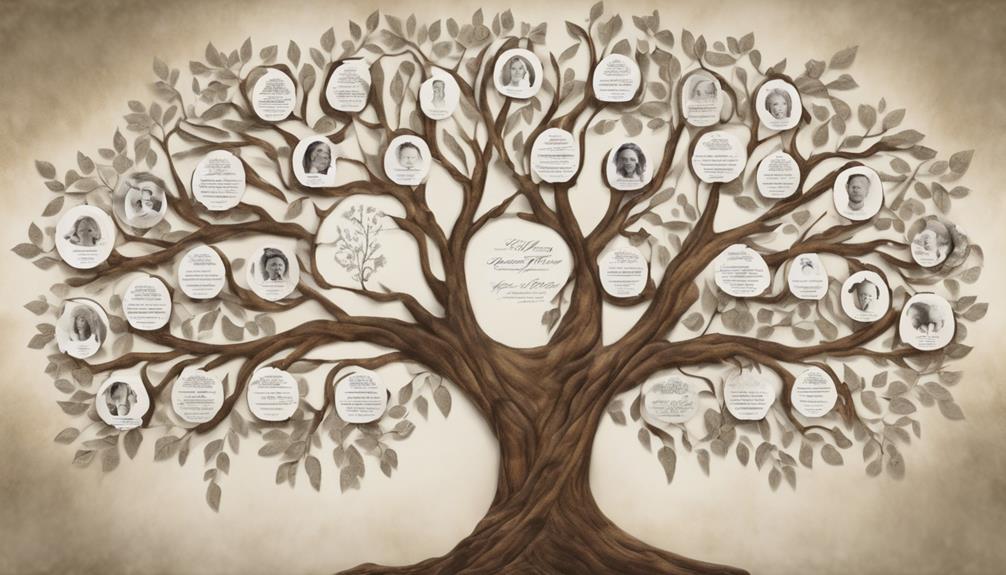
Exploring the heritability of dementia sheds light on the important role genetic factors play in influencing an individual's susceptibility to the condition. Understanding the impact of genetic inheritance on the risk of dementia, especially in conditions like Alzheimer's disease and early-onset dementia, is essential for individuals with a family history of the condition. Genetic testing is a valuable tool in unraveling the hereditary aspects of dementia, providing insights into the genetic factors that contribute to its development.
| Heritability of Dementia | ||
|---|---|---|
| Genetic Testing | Hereditary Risk | Family History |
| Genetic testing is essential in understanding the heritability of dementia, particularly in Alzheimer's disease and early-onset cases. | The risk of dementia can be significantly influenced by hereditary factors, especially in families with a history of autosomal dominant early-onset dementia. | Knowing one's family history of dementia is crucial in evaluating the risk of developing the condition and the potential role of genetic factors. |
Familial Risk Factors
When examining familial risk factors for dementia, it's important to take into account inherited gene mutations and the available genetic counseling options.
These factors can offer valuable insights into one's risk of developing dementia based on their family history.
Understanding these aspects can assist individuals and families in making informed decisions about genetic testing and potential interventions.
Inherited Gene Mutations
Understanding how inherited gene mutations contribute to familial risk factors for specific types of dementia is essential in evaluating and managing potential risks within families. Inherited gene mutations can play a significant role in the development of certain types of dementia, including early-onset Alzheimer's disease and frontotemporal dementia. These genetic links for different types of dementia can be inherited within families, leading to a higher risk of developing the condition. Genetic variants, such as the APOE4 gene, are associated with an increased risk of Alzheimer's disease. Familial Alzheimer's, frontotemporal dementia, and rare types of dementia may have a hereditary component, impacting multiple generations. Understanding these genetic factors can help families assess their risk and potentially delay the onset of Alzheimer's disease.
| Genetic Factor | Associated Dementia Type | Inheritance Pattern |
|---|---|---|
| APOE4 gene | Alzheimer's disease | Autosomal dominant |
| Genetic variants | Frontotemporal dementia | Variable |
| Familial history | Rare types of dementia | Autosomal dominant |
Genetic Counseling Options
Genetic counseling offers families with a history of dementia valuable insights into their familial risk factors. Understanding the genetic component of the disease can help assess the risk of developing Alzheimer's or frontotemporal dementia.
Families with a history of autosomal dominant early-onset dementia face a high 95% lifetime risk of dementia. Genetic counseling programs focus on genetic testing for these specific types of dementia.
Approximately a quarter of individuals aged 55 and above have a family history of dementia, making genetic counseling an essential tool in managing hereditary risks. By providing support and guidance, genetic counseling empowers families to make informed decisions about their health and future.
Autosomal Dominant Inheritance
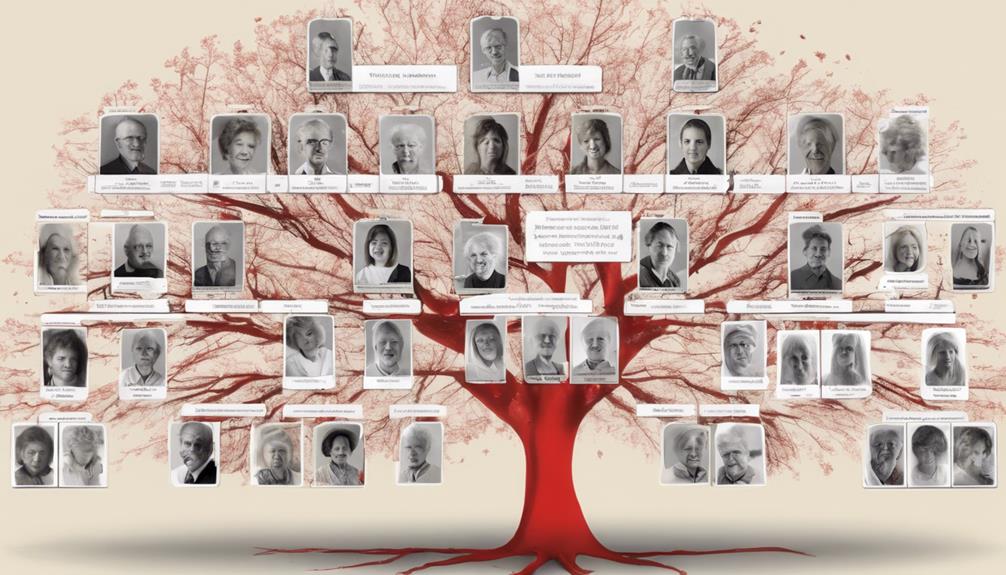
Autosomal dominant inheritance means that a gene mutation on one copy of a non-sex chromosome can cause the disease, with a 50% chance of passing it on to each offspring. In families where a parent has the condition, there's a 50% risk of inheriting the mutated gene and developing the disease.
This type of inheritance is observed in rare forms of dementia like familial Alzheimer's disease and some cases of frontotemporal dementia.
Genetic Risk Factors
In cases of dementia with autosomal dominant inheritance, individuals have a 50% chance of inheriting the gene from an affected parent. Specific genes like APP, PSEN1, PSEN2, and MAPT can lead to autosomal dominant forms of dementia. This type of inheritance often results in early-onset dementia in those affected.
Rare, inherited forms of dementia frequently exhibit autosomal dominant patterns, emphasizing the importance of genetic testing. Genetic testing plays a vital role in identifying autosomal dominant gene variants associated with familial forms of dementia. Understanding these genetic risk factors can aid in early detection and intervention for individuals at risk of inherited forms of dementia.
Family History Connection
Exploring the familial link to early-onset dementia reveals a significant 95% lifetime risk for individuals with a family history of autosomal dominant inheritance.
In families with a history of autosomal dominant inheritance, genetic testing plays an important role in understanding the genetic basis of Alzheimer's disease and frontotemporal dementia. Genetic counseling is essential for evaluating and managing the risk of dementia in these families.
It's estimated that about 25% of individuals aged 55 and above have a family history of dementia, with a lifetime risk of around 20%.
To better understand and manage the risk of early-onset dementia in families with a strong history of autosomal dominant inheritance, emphasizing genetic testing and counseling is crucial.
Genetic Testing for Dementia
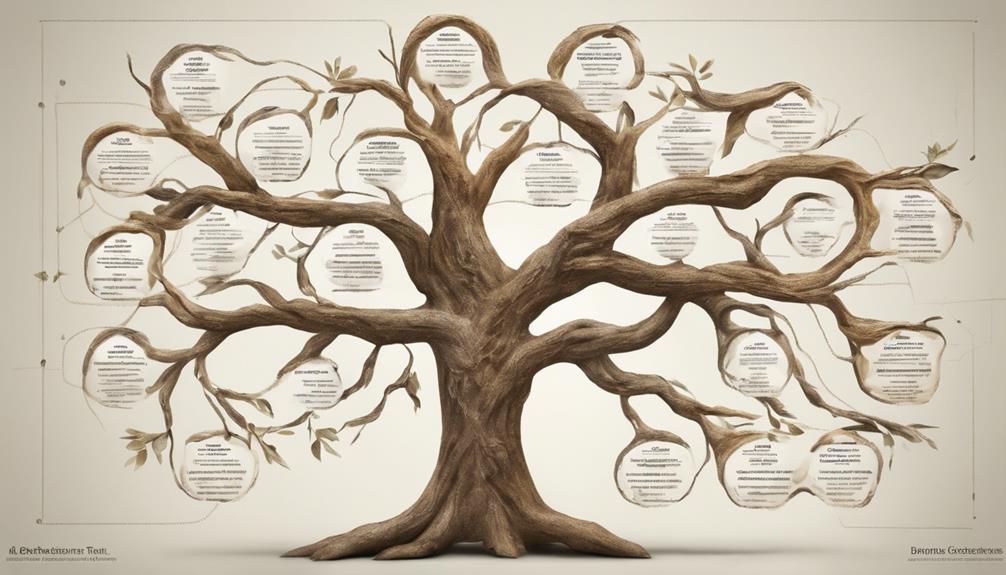
Considering the potential implications and benefits, genetic testing for dementia remains an important tool in identifying specific gene variants associated with increased risk of the disease. Here are four key points about genetic testing for dementia that are significant to understand:
- Identification of Gene Variants: Genetic testing can pinpoint gene variants like the APOE-e4 gene and rare Alzheimer's genes that may elevate the risk of developing dementia.
- Genetic Counseling: Before and after undergoing genetic testing, it's recommended to seek genetic counseling. This guidance helps individuals comprehend the implications of their results thoroughly.
- Treatment Decisions: Results from genetic testing can influence treatment decisions. Understanding one's genetic risk can lead to more personalized and effective approaches to managing dementia.
- Familial Early-Onset Alzheimer's: Rare genes associated with familial early-onset Alzheimer's can be detected through genetic testing. Even though these genes are rare, identifying them can be vital for a small percentage of Alzheimer's cases.
Managing Hereditary Dementia

After understanding the significance of genetic testing for dementia, the focus now shifts towards effectively managing hereditary dementia. Hereditary dementia is rare and often linked to specific genetic mutations that can be passed down through families. Genetic counseling plays an important role in guiding individuals on managing the risks associated with hereditary dementia and understanding inheritance patterns. Rare forms of dementia, such as early-onset Alzheimer's and familial frontotemporal dementia, may have a stronger hereditary component, making it essential to identify specific genetic variants through testing to make informed decisions.
| Inheritance Patterns | Rare Forms | Intervention Strategies |
|---|---|---|
| Specific genetic mutations can be directly inherited within families | Early-onset Alzheimer's and familial frontotemporal dementia | Early detection is key to implementing appropriate care plans |
| Genetic counseling provides insights into managing hereditary dementia risks | Stronger hereditary component in rare forms of dementia | Identifying genetic variants through testing can help in decision-making |
Early detection and intervention strategies are crucial in managing hereditary dementia cases effectively.
Frequently Asked Questions
Is Dementia Is Hereditary?
Dementia can be hereditary in rare cases due to genetic factors. While most instances are not inherited, some types like early-onset Alzheimer's and certain rare dementias have genetic links that increase the risk.
What Is the Number One Trigger for Dementia Behavior?
The number one trigger for dementia behavior is changes in the brain, specifically the accumulation of abnormal proteins like amyloid. Understanding these triggers can assist in managing symptoms and enhancing the quality of life for individuals with dementia.
What Side of the Family Does Dementia Come From?
Dementia can come from both sides of the family. Genetic risk factors for dementia can be inherited from either parent. It's important to take into account overall genetic and environmental factors contributing to its development.
Does the Dementia Gene Skip a Generation?
The dementia gene may not always skip a generation. Understanding genetic factors can reveal inheritance patterns. Genetic counseling can provide clarity on familial dementia risks. Insight into these factors can help us better understand hereditary risks.
Conclusion
To sum up, the genetic puzzle of dementia is like a complex labyrinth, with each inherited trait contributing to the overall picture. Understanding the hereditary aspects of this condition can provide valuable insights for diagnosis and management.
By exploring familial risk factors and genetic testing options, we can navigate this intricate maze with knowledge and foresight.
Remember, knowledge is power when it comes to unraveling the mysteries of dementia and its genetic connections.
Albert brings a wealth of knowledge and expertise to our writing team. With a background in caregiving and a deep understanding of the challenges faced by caregivers, Albert’s writing resonates with authenticity and empathy. He is committed to delivering high-quality content that empowers and supports caregivers on their journey.
Caregiver Support
Practical Guide Upon Death
With practical steps to follow upon death, this guide ensures you navigate essential tasks smoothly during a challenging time.

In the aftermath of a loved one's passing, practical guidance upon death can streamline essential tasks. Notify authorities promptly, register the death, and inform relevant departments like the HMRC and DWP. Manage financial aspects efficiently by seeking support, planning funeral arrangements, and ensuring legal obligations are met. Coordinate funeral preferences, notify contacts, and handle estate matters with care. Efficient communication, detailed preparations, and seeking advice where necessary are key. Understanding these steps is vital for navigating this challenging time smoothly.
Key Takeaways
- Notify relevant authorities promptly for legal obligations.
- Utilize Tell Us Once service for efficient notifications.
- Manage financial matters and seek assistance if needed.
- Ensure all necessary documentation is in order.
- Coordinate funeral arrangements and communicate preferences clearly.
Notifying Authorities and HMRC
When a death occurs, our first step is to promptly notify the relevant authorities and HMRC using the efficient Tell Us Once service. This service streamlines the process by informing various government departments about the deceased, reducing the administrative burden during a challenging time.
The funeral director plays a pivotal role in obtaining the death certificate, an essential document required for official purposes. This certificate validates the death and is necessary for settling legal and financial matters.
Working closely with the funeral director, we make sure that all necessary paperwork is in order to proceed with notifying HMRC and other relevant bodies. By promptly informing HMRC, we initiate the process of handling the deceased's tax affairs and any potential refunds or liabilities. This early notification helps prevent complications and ensures a smoother handling in managing the deceased's financial matters.
Coordinating with the funeral director and obtaining the death certificate are pivotal initial steps in the practical handling of a loved one's passing.
Registering the Death and DWP

When dealing with the aftermath of a loved one's passing, it's important to promptly register the death with the relevant authorities. This process involves providing detailed information to obtain the necessary documentation for funeral arrangements and handling benefits.
Additionally, informing the Department for Work and Pensions is vital for managing financial matters and ensuring the proper support during this challenging time.
Death Certificate Process
Registering a death and handling the DWP benefits involve a structured process that must be completed promptly after a loved one passes away. The funeral home will assist in obtaining the required information for the death certificate, including the date, place of death, full name, address, birth details, occupation, marital status, and details about benefits.
Within five days, the death must be registered with the Registrar of Births, Deaths, and Marriages. Once registered, the Registrar issues a certificate for funeral arrangements and a benefits handling form. Hospital mortuaries hold the body until arrangements by the executor are made, and the doctor provides a medical certificate with the cause of death for registration.
In cases of uncertain causes of death, the coroner conducts an investigation before issuing the death certificate.
Informing Department for Work and Pensions
Informing the Department for Work and Pensions promptly about a loved one's death is essential to update their records and prevent overpayments.
When registering the death with the DWP, provide details such as the deceased's National Insurance number and date of death.
Contact the DWP to halt any benefits or pension payments to the deceased individual. This practical step guarantees a smooth changeover and helps avoid delays in handling the affairs of the deceased.
By notifying the DWP in a timely manner, you can prevent any unnecessary financial complications. Remember, prompt action is key in these situations to facilitate the necessary administrative processes.
Following these steps will assist in managing the deceased's affairs efficiently and responsibly.
Handling Financial Matters
Dealing with financial matters after a death involves promptly notifying relevant government departments and seeking guidance on managing the deceased's finances.
Utilize the Tell Us Once service to notify various entities such as HM Revenue & Customs (HMRC), the Department for Work and Pensions (DWP), the Passport Office, the local council, and the DVLA.
Furthermore, reach out to the Money Advice Service for support in handling the deceased's financial affairs. Explore resources like Age UK, Money Advice Service, and Final Fling for thorough assistance.
Seek advice on funeral costs and consider financial assistance if needed. Be proactive in managing social security checks and handling any outstanding financial obligations.
Managing Finances and Money Advice

When managing finances after a loved one's passing, it's important to handle estate planning basics and budget effectively. Seek advice on pensions, tax, debts, insurance, benefits, and estate management to guarantee financial stability.
Notify relevant government departments to prevent identity fraud and manage the deceased's records efficiently.
Estate Planning Basics
To effectively manage finances and receive valuable money advice in estate planning, it's important to engage in thorough financial organization and seek professional guidance. When considering estate planning basics, it's essential to create wills, trusts, and powers of attorney to safeguard assets and make sure their distribution aligns with your wishes.
Money advice services can provide essential guidance on handling pensions, taxes, debts, insurance, benefits, and estate administration. Executors must notify relevant authorities like HMRC, DWP, Passport Office, local council, and DVLA about the deceased's passing.
Understanding funeral costs, memorials, and seeking financial assistance if needed are crucial aspects of estate planning. By following this practical guide, you can navigate the complexities of estate planning efficiently and ensure a smooth transfer of wealth.
Budgeting After Loss
After establishing wills, trusts, and powers of attorney for effective estate planning, the focus shifts to managing finances and seeking money advice following a loss. Handling finances after the loss of a loved one can be overwhelming, but having a clear plan can help navigate this challenging time. Consider seeking guidance from organizations like the Money Advice Service or Age UK for expert advice on managing finances post-loss. To provide a visual representation of key considerations, refer to the table below:
| Aspect | Action | Resources |
|---|---|---|
| Pensions | Review and update beneficiary details | Money Advice Service |
| Tax | Notify HMRC about changes | Final Fling |
| Debts | Address outstanding debts | Age UK |
| Insurance | Review policies and update beneficiaries | Money Advice Service |
Funeral Preferences and Assistance

In discussing funeral preferences and assistance, we address the vital decisions and support needed during this challenging time. When a loved one dies, there's a need to contemplate various aspects of the funeral arrangements. This includes deciding between burial or cremation, choosing a casket type, and determining the nature of the ceremony that best honors the deceased. Assistance with funeral arrangements is essential and may involve coordinating transportation, participants, flowers, leaflets, headstones, and cemetery plots.
Communication with family and friends is essential during this period. Notifying loved ones, creating contact lists, and informing relevant companies and agencies about the deceased are important tasks. Additionally, providing support through meal preparation, organizing meals for funeral guests, and following traditions like Seudat Havraah after the funeral can help ease the burden on the immediate family. Emphasizing foresight and preparation while moving through rituals and traditions can aid in the grieving process.
Death Abroad Procedures

Dealing with death abroad necessitates adherence to the specific laws of the country where the passing occurred. When someone dies overseas, it's important to navigate the legal processes diligently.
To begin with, make sure you have the necessary documentation, including the deceased's date of birth and any relevant identification papers. Reporting the death to the British Consul may be necessary for potential registration in the UK. Additionally, check if the travel insurance covers the costs of repatriating the deceased's body to the UK.
Once back in the UK, notifying the Registrar of Births, Deaths, and Marriages is vital for arranging burial or cremation. It's also essential to inform relevant authorities if the deceased had expressed wishes for organ donation or body donation to science.
Handling the Aftermath Efficiently

Managing the aftermath of handling a death abroad efficiently involves promptly notifying relevant authorities to manage the deceased's affairs effectively. This step is essential in ensuring a smooth process for settling the deceased's estate and fulfilling any necessary legal obligations. Utilizing services like Tell Us Once can streamline the notification process to various government departments, reducing the administrative burden during a difficult time.
To further assist in handling the aftermath efficiently, consider creating a list of people to inform about the death. This list may include family members, friends, employers, and any other relevant parties. Clear communication with loved ones and others involved can help distribute responsibilities and provide support during the aftermath of a death abroad.
| List of People to Notify | Contact Information |
|---|---|
| Family Members | Phone numbers, emails |
| Friends | Phone numbers, emails |
| Employers | Human Resources department contact |
| Relevant Authorities | Local embassy, consulate contact information |
Frequently Asked Questions
What Paperwork Needs to Be Done After a Death?
After a death, several important paperwork tasks must be completed. These include:
- Obtaining multiple copies of the death certificate
- Reviewing the deceased's will
- Gathering important documents like insurance policies and financial accounts
- Notifying the Social Security Administration
- Contacting institutions such as banks and creditors
Ensuring these steps are taken care of promptly and efficiently is essential for managing the deceased's affairs and addressing legal obligations.
What to Do Immediately After Someone Dies?
Immediately after someone dies, we should contact the hospital or care home for belongings.
The hospital mortuary holds the body until arrangements.
A doctor provides a death certificate for registration.
The Registrar must be informed within 5 days for further documentation.
This process helps in organizing funeral arrangements and managing benefits efficiently.
What Do You Say When Someone Passes Away?
When someone passes away, we offer our condolences and express sympathy. We share favorite memories of the deceased to honor them. We ask how we can support during this difficult time. Avoiding clichés, we provide genuine comfort and support. We let them know we're here to listen.
Supporting those grieving is vital, showing empathy and love. These actions help navigate the challenging journey of loss.
What Happens if Someone Dies Without Family?
When someone dies without family, the state's public administrator steps in. They manage the deceased person's estate, handling assets, debts, and belongings.
If no heirs are found, the state may claim the estate. The public administrator searches for potential beneficiaries. If no one claims the estate, the state may use the assets to pay debts and cover funeral expenses before absorbing any remaining funds.
Conclusion
To sum up, it's important to be prepared for the practical aspects of dealing with death. Did you know that 70% of adults in the UK don't have a will?
By following the steps outlined in this guide, you can make sure that you're ready to handle the necessary tasks and decisions that come with the passing of a loved one.
Remember, being informed and organized can make a difficult time a little bit easier.
Albert brings a wealth of knowledge and expertise to our writing team. With a background in caregiving and a deep understanding of the challenges faced by caregivers, Albert’s writing resonates with authenticity and empathy. He is committed to delivering high-quality content that empowers and supports caregivers on their journey.
-

 Dementia Care2 weeks ago
Dementia Care2 weeks agoHow Gabapentin Affects Dementia: A Comprehensive Guide
-

 Dementia Care2 months ago
Dementia Care2 months agoUnderstanding the Stages of Vascular Dementia: A Visual Chart Guide
-

 Dementia Care2 weeks ago
Dementia Care2 weeks ago5 Things You Need to Know About Jack Nicholson’s Dementia
-

 Medication Management1 month ago
Medication Management1 month agoGabapentin Side Effects: Memory Loss Concerns?
-

 Dementia Care2 months ago
Dementia Care2 months agoUnderstanding Narcissism and Dementia: A How-To Guide
-

 Palliative Care for Parkinson's2 weeks ago
Palliative Care for Parkinson's2 weeks agoPalliative Care for Parkinson’s: A New Hope for Patients”
-
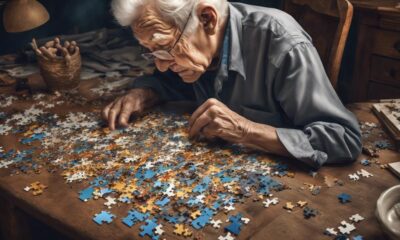
 Dementia Care2 weeks ago
Dementia Care2 weeks ago10 Engaging Dementia Games for Cognitive Stimulation
-

 Dementia Care2 months ago
Dementia Care2 months agoHow to Deal with a Parent’s Dementia: A Practical Guide
